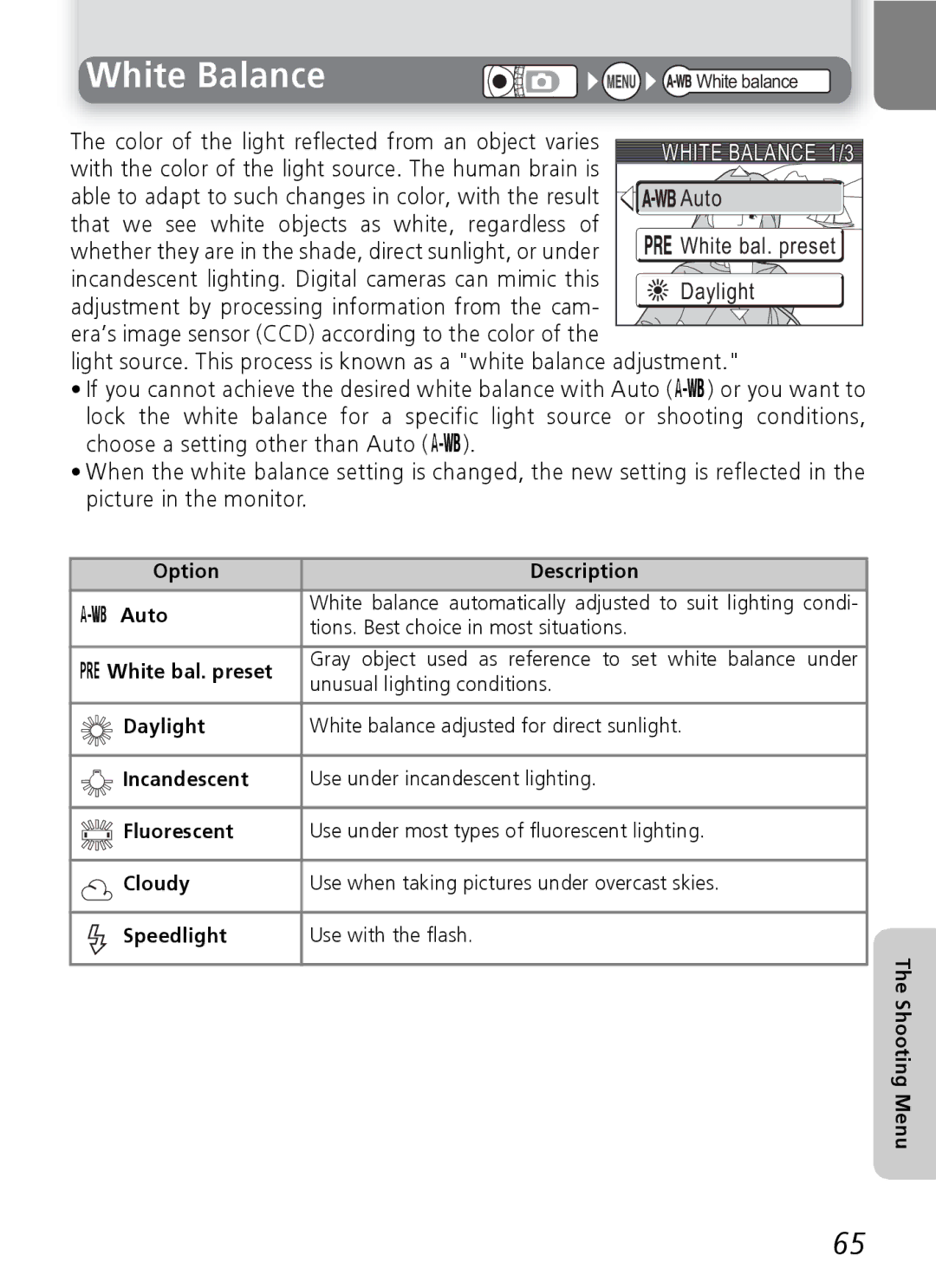
White Balance
The color of the light reflected from an object varies with the color of the light source. The human brain is
able to adapt to such changes in color, with the result that we see white objects as white, regardless of whether they are in the shade, direct sunlight, or under incandescent lighting. Digital cameras can mimic this adjustment by processing information from the cam- era’s image sensor (CCD) according to the color of the
light source. This process is known as a "white balance adjustment."
•If you cannot achieve the desired white balance with Auto (M) or you want to lock the white balance for a specific light source or shooting conditions, choose a setting other than Auto (M).
•When the white balance setting is changed, the new setting is reflected in the picture in the monitor.
Option | Description | |
M Auto | White balance automatically adjusted to suit lighting condi- | |
tions. Best choice in most situations. | ||
| ||
n White bal. preset | Gray object used as reference to set white balance under | |
unusual lighting conditions. | ||
| ||
Daylight | White balance adjusted for direct sunlight. | |
Incandescent | Use under incandescent lighting. | |
Fluorescent | Use under most types of fluorescent lighting. | |
Cloudy | Use when taking pictures under overcast skies. | |
Speedlight | Use with the flash. |
The Shooting Menu
65
